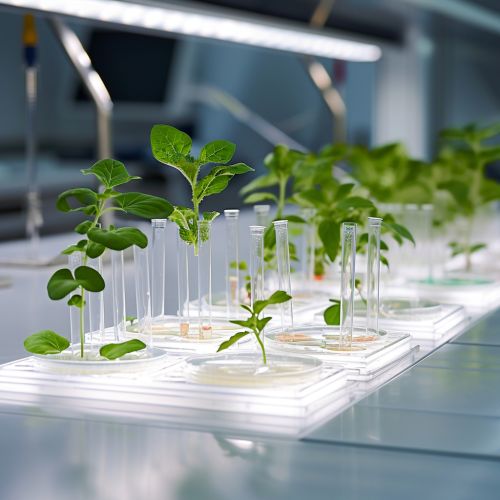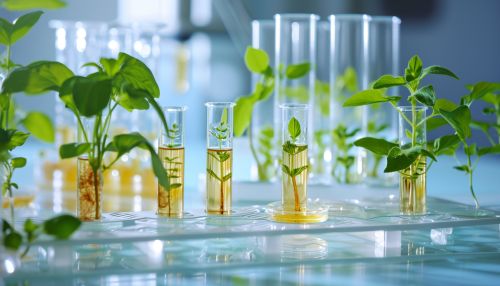Plant Biotechnology
Introduction
Plant biotechnology, also known as plant genetic engineering, is a subset of biotechnology that involves the application of scientific techniques to modify plants for specific purposes. This field has revolutionized agriculture, horticulture, and the food industry by improving crop yield, enhancing nutritional content, and increasing resistance to pests and diseases.
History
The history of plant biotechnology dates back to the early 20th century with the discovery of genetics and the understanding of Mendelian inheritance. However, the term "biotechnology" was first used in 1919 by a Hungarian engineer, Károly Ereky. The field has since evolved, incorporating advanced technologies such as genetic engineering, tissue culture, and genomics.
Techniques in Plant Biotechnology
Plant biotechnology employs several techniques to modify plants, including:
Genetic Engineering
Genetic engineering involves the direct manipulation of an organism's genes using biotechnology. In plant biotechnology, this technique is used to introduce new traits to plants or enhance existing ones.
Tissue Culture
Tissue culture is a technique used in plant biotechnology for the propagation of plants under sterile conditions. It is used to produce clones of a plant in a method known as micropropagation.
Molecular Breeding
Molecular breeding is a technique in plant biotechnology that involves the application of molecular biology tools, often in plant breeding. It aims at improving the genetic makeup of crop plants.
Applications of Plant Biotechnology
Plant biotechnology has a wide range of applications in various fields, including agriculture, medicine, and industry.
Agriculture
In agriculture, plant biotechnology is used to improve crop yield, enhance nutritional content, and increase resistance to pests and diseases. It also aids in the development of genetically modified crops.
Medicine
Plant biotechnology is also used in medicine for the production of pharmaceuticals. Certain plants have been genetically engineered to produce therapeutic proteins, a process known as pharming.
Industry
In the industry, plant biotechnology is used in the production of biofuels, bioplastics, and other bioproducts.
Ethical and Environmental Considerations
Like any other technology, plant biotechnology has its ethical and environmental considerations. These include concerns about genetically modified food controversies, potential risks to biodiversity, and ethical issues related to patenting life forms.
Future of Plant Biotechnology
The future of plant biotechnology holds promising potential. With the advancement in technologies such as CRISPR and genome editing, it is anticipated that more precise and efficient modifications can be made to plants, further enhancing their utility.
See Also


